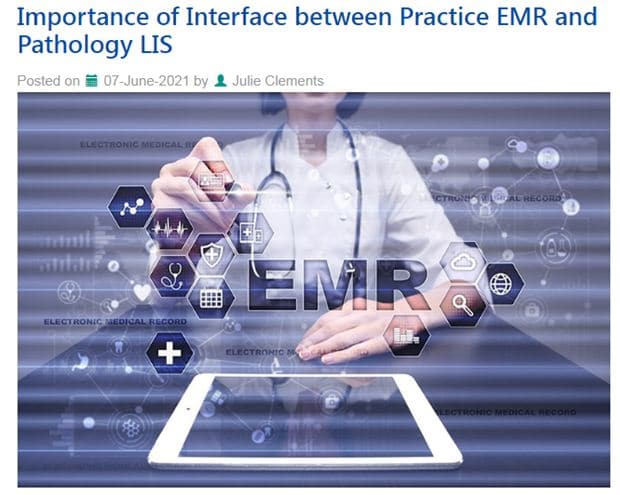 As a responsible medical transcription company, we are conscious about the importance of ensuring accurate and timely healthcare documentation in the event of a public health crisis such as the ongoing flu season. The flu season is on a rampage in the U.S. New York Times reports that the 2018 flu season is worse than any since the 2009 swine flu pandemic. Flu affects all age group though the risks are greater for children and older adults. What makes things worse is that it is very difficult to differentiate the flu from other infections on the basis of symptoms alone. This can have serious implications, especially for older adults. In fact, a new study has found that physicians are less likely to order an influenza diagnostic test for adults aged 65 years or older with influenza-like illness (ILI) during the winter months than younger adults. The findings were published online January 18 in the Journal of the American Geriatrics Society.
As a responsible medical transcription company, we are conscious about the importance of ensuring accurate and timely healthcare documentation in the event of a public health crisis such as the ongoing flu season. The flu season is on a rampage in the U.S. New York Times reports that the 2018 flu season is worse than any since the 2009 swine flu pandemic. Flu affects all age group though the risks are greater for children and older adults. What makes things worse is that it is very difficult to differentiate the flu from other infections on the basis of symptoms alone. This can have serious implications, especially for older adults. In fact, a new study has found that physicians are less likely to order an influenza diagnostic test for adults aged 65 years or older with influenza-like illness (ILI) during the winter months than younger adults. The findings were published online January 18 in the Journal of the American Geriatrics Society.
The study from the Department of Medicine at Vanderbilt University School of Medicine (VUSM) in Nashville, Tennessee, points to the need to overcome the challenges associated with diagnosing influenza in the vulnerable older population. These findings have great relevance in the present context as reports indicate that this year’s flu season has hit older adults hard. The Association of Health Care Journalists cites a Chinook (Washington) Times report which noted that those over age 65 are dying from flu and pneumonia at a rate nearly six times higher than usual.
Accurate and timely diagnosis is critical for appropriate treatment of patients with respiratory illness. Early diagnosis of influenza will allow antiviral therapy to be initiated as early as possible for suspected or confirmed influenza. Influenza-like illness (ILI) is also known as acute respiratory infection (ARI) and flu-like syndrome/symptoms including fever, cough, and/or sore throat. However, it is difficult to diagnose influenza on the basis of such signs and symptoms alone as the symptoms from illness caused by other pathogens are similar to those of influenza.
Complications related to influenza will vary based on age, immune status, and underlying medical conditions. Flu complications include worsening of underlying chronic medical conditions such as congestive cardiac failure, worsening of asthma, chronic obstructive pulmonary disease, lower respiratory tract disease, invasive bacterial co-infection; cardiac musculoskeletal, neurologic conditions, and multi-organ failure.
As human immune defenses become weaker with age, adults 65 years and older are at greater risk of serious complications from the flu. Studies have found that in recent years, for example, between 71 percent and 85 percent of deaths during the flu season occurred in people 65 years and older and that people in this age group accounted for 54-70 of seasonal flu-related hospitalizations.
Tests used to diagnose influenza include reverse transcriptase polymerase chain reaction (RT-PCR) to detect viral RNA, rapid antigen detection, and viral culture. Timely testing and accurate diagnosis of flu is crucial for administering antiviral treatment to diminish patient suffering and limit the spread of the infection.
The VUSM researchers examined influenza testing in more than 1422 patients hospitalized with respiratory illness or a non-localizing fever in Tennessee during the flu season between November 2006 and April 2012. The study was based on a prospective, laboratory-based surveillance approach, including data from patient questionnaires and charts.
The researchers conducted RT-PCR influenza testing for all the patients, even if their physicians had not ordered that or other tests to confirm influenza. The team then compared the demographic and clinical characteristics of patients for whom testing with those of patients for did not undergo laboratory-based diagnostic tests.
The study found that:
- Only 28% were tested for the flu by their providers
- Adults aged 65 and older were tested less often than younger patients
- Of the 10% who were flu positive by the study’s RT-PCR testing, less than half had a flu test ordered
- Those with heart and lung disease were less likely to be tested as their symptoms were atypical and not similar to typical flu symptoms
These results show that adults aged 65 and older are more vulnerable that other age groups. With high incidence of chronic conditions, older patients are at higher risk for influenza-related morbidity and mortality.
 The researchers advise that, “Further strategies are needed to increase clinician understanding of the challenges in clinically identifying influenza in older adults, as well as the limitations of diagnostic tests, to better diagnose and treat cases of influenza in this vulnerable population”. They stress that their findings are a reminder that physicians “need to be vigilant about diagnosing flu so that we don’t miss the opportunity for early treatment”.
The researchers advise that, “Further strategies are needed to increase clinician understanding of the challenges in clinically identifying influenza in older adults, as well as the limitations of diagnostic tests, to better diagnose and treat cases of influenza in this vulnerable population”. They stress that their findings are a reminder that physicians “need to be vigilant about diagnosing flu so that we don’t miss the opportunity for early treatment”.
The influenza division of the Centers for Disease Control and Prevention (CDC) estimates that the current flu hospitalization rate, which is a predictor of the death rate, is on track to equal or exceed that of the 2014-2015 flu season. The CDC is still urging people to get vaccinated to lessen the likelihood of infection and spread.
The nasal spray flu vaccine is not recommended for use in any population for the 2016-17 season and the CDC cautions that people 65 years of age and older should not get the nasal spray flu vaccine, intradermal flu shot or jet injector flu vaccine. The two vaccines designed specifically for people 65 and older are: the high dose vaccine and the adjuvanted flu vaccine, Fluad. As people 65 and older have a greater chance of getting serious flu complications, they should be treated using antiviral drugs as early as possible. Starting treatment within the first 2 days of illness provides the greatest benefits.
Needless to say, the current flu season has created a crisis situation in primary care practices, urgent care clinics, and hospitals. Outsourcing medical transcription can help physicians and nurses manage their electronic health record (EHR) documentation challenges as they cope with the pressure of treating critically ill patients.


